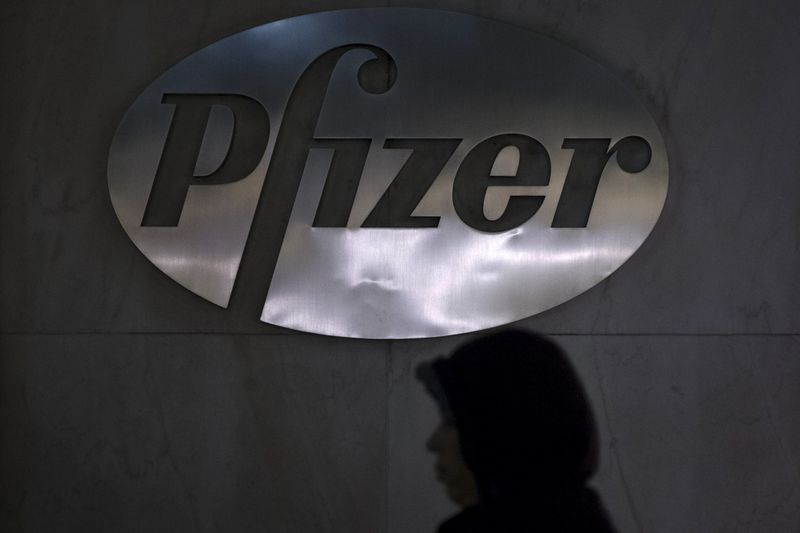By Ransdell Pierson
(Reuters) - Pfizer Inc (N:PFE), which last month abandoned its $160 billion (109.90 billion pound) quest for Allergan Inc (N:AGN), reported quarterly results that blew past analyst estimates on sales of its new cancer and arthritis treatments and the acquisition last year of hospital products company Hospira.
The largest U.S. drugmaker also raised its revenue and earnings forecast for the year, helped in part by the weakening dollar. Shares of the company rose 2.4 percent in morning trading on Tuesday.
Global company sales jumped 20 percent to $13 billion in the first quarter, which was $1 billion more than Wall Street had expected. But the quarter included five more days of sales in the United States than the year-ago quarter, adding revenue of $900 million in the most recent period. Pfizer said sales would be hurt in the fourth quarter of 2016, however, when those added days will be offset by fewer days.
Credit Suisse (SIX:CSGN) analyst Vamil Divan said the results were impressive, with most drug categories beating sales expectations. But he said investors are eager to hear how Pfizer's overall strategy might change, given its dashed hopes for Allergan.
Pfizer walked away from the deal after the U.S. Treasury issued new rules curbing tax inversion deals, under which American companies move overseas to cut taxes.
Many analysts believe Pfizer needs to buy new medicines or entire biotech companies to ensure competitive earnings growth.
Meanwhile, its recently launched breast cancer treatment, Ibrance, is on its way to becoming a mega-blockbuster product. Its sales jumped to $429 million, from $38 million in the year-ago quarter.
Morningstar analyst Damien Conover said sales of rheumatoid arthritis pill Xeljanz more than doubled to $197 million after new treatment guidelines from the American College of Rheumatology put it on par with standard injectable treatments for patients that have failed prior therapy.
With the Allergan deal scratched, Pfizer has said it will decide this year whether to sell or split off its hundreds of generic medicines, called established products, into a separate business. When it announced its planned Allergan deal last November, Pfizer put off making the decision until 2019.
Conover said Pfizer is likely for the remainder of 2016 to seek far smaller "bolt on" deals, possibly in the $5 billion to $20 billion range.
"They really need to figure out whether to break into two pieces before doing a lot of big mergers," Conover said.
Sales of Pfizer's generic medicines rose 17 percent in the quarter to $5.97 billion, while sales of its array of patent-protected drugs jumped 23 percent to $7.03 billion.
Pfizer in September 2015 completed its $16 billion purchase of Hospira, which makes a wide array of drugs and devices used in hospitals, especially sterile injectable products. Hospira products posted sales of $1.2 billion in the quarter.
Net income rose to $3.02 billion, or 49 cents per share, from $2.38 billion, or 38 cents per share, a year earlier, according to Thomson Reuters I/B/E/S.
Excluding special items, Pfizer earned 67 cents per share, well above the average analyst estimate of 55 cents per share.

Pfizer now expects 2016 revenue of $51 billion to $53 billion, from its earlier view of $49 billion to $51 billion, and earnings of $2.38 to $2.48 per share, from $2.20 to $2.30 per share.